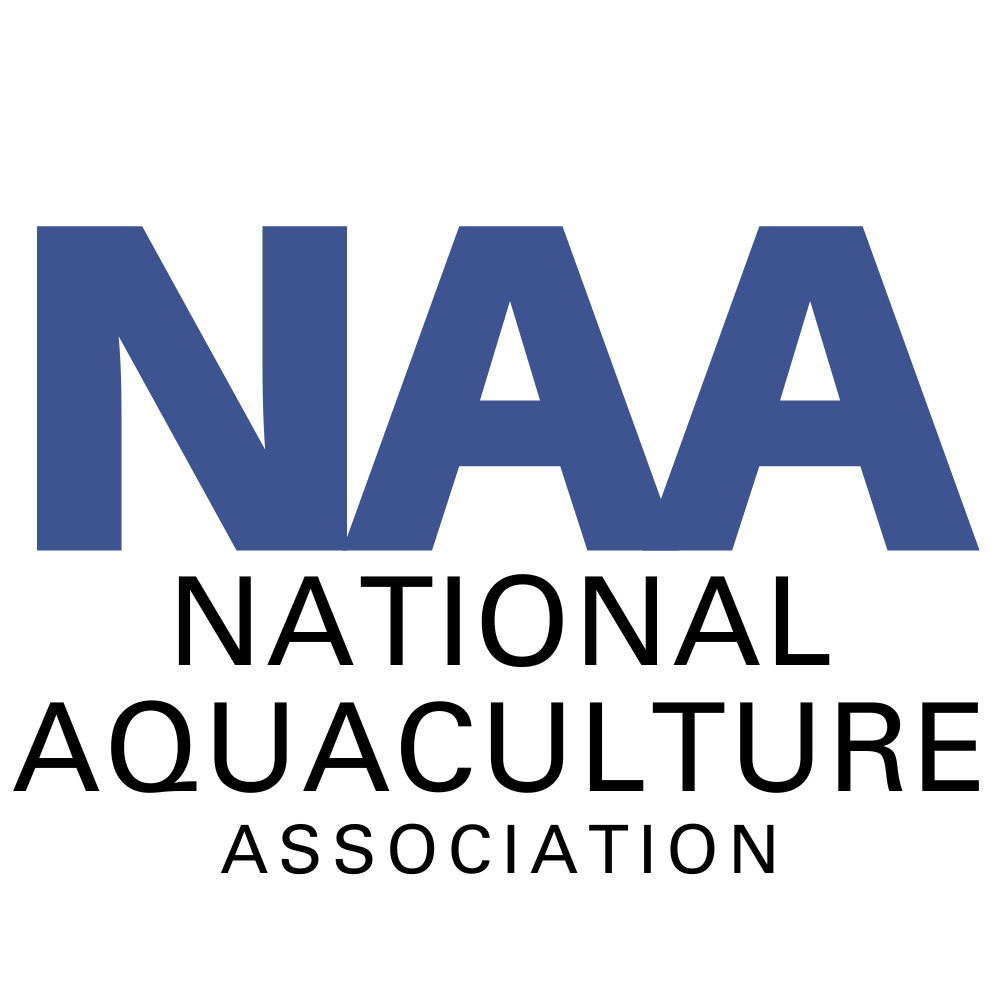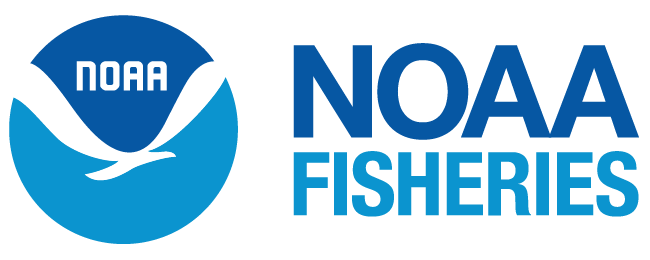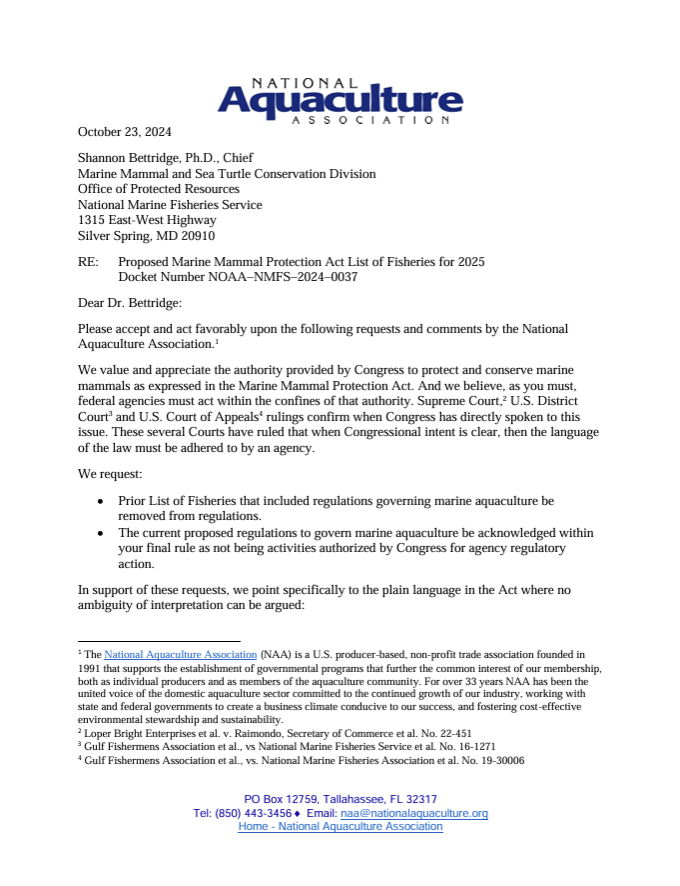
NMFS Re-Opens Marine Mammal List of Fisheries Comment Period
Submit Comments by Dec. 1, 2024!
On September 24, 2024, the National Marine Fisheries Service (NMFS) published its proposed List of Fisheries for 2025, as required by the Marine Mammal Protection Act (MMPA). The original comment period closed on October 24, 2024. In response to requests to extend the public comment period from the East Coast Shellfish Growers Association, Maine Aquaculture Association and National Aquaculture Association, NMFS is reopening the comment period through December 1, 2024. You can comment by clicking on Regulations.gov or by using regulations.gov as a search term and entering “NOAA-NMFS-2024-0037” in the search box.
The List of Fisheries identifies commercial fishing activities that pose a risk to marine mammals and requires certain protections based upon categorizing fisheries as highest risk (Category I) to lowest risk (Category III). Certain marine aquaculture production practices have been categorized as a fishery since 1989.
The current List of Fisheries includes:
- Hawaii Offshore Pen Culture
- California Marine Shellfish Aquaculture
- California Salmon Enhancement Rearing Pen
- California White Seabass Enhancement Pet Pens
- Washington Salmon Net Pens
- Washington and Oregon Shellfish Aquaculture
- Finfish Aquaculture prior designated as Gulf of Maine Atlantic Salmon
- Shellfish Aquaculture
The proposed List of Fisheries for 2025 includes additional marine aquaculture production practices:
- Alaska Invertebrate Aquaculture
- Alaska Macroalgae Aquaculture
- Atlantic Ocean, Gulf of Mexico, and Caribbean
- Aquaculture Rafts
- Bottom Culture (trays/cages) with buoys
- Longline Aquaculture (suspended or floating cages)
- On-bottom/Off-bottom Culture (trays/cages) with buoys
- On-bottom/Off-bottom Culture (trays/cages) without buoys
The National Aquaculture Association submitted a comment letter on October 23rd pointing to the plain language in the Marine Mammal Protection Act where no ambiguity of interpretation can be argued. The law reads:
U.S. Code
Title 16-Conservation
Chapter 31-Marine Mammal Protection
Subchapter I-Generally
Ҥ1362. Definitions
(16) The term ‘fishery’ means-
(A) one or more stocks of fish which can be treated as a unit for purposes of conservation and management and which are identified on the basis of geographical, scientific, technical, recreational, and economic characteristics; and
(B) any fishing for such stocks.”
The plain meaning and usage of the words “stocks” and “fishing” do not encompass farming of aquatic animals and plants.
As a regulated citizenry we can read the law. Clearly, marine aquaculture production practices are not a fishery and not subject to direct agency authority. We requested in the final rule these erroneously listed “fisheries” be removed from the Code of Federal Regulations for the lack of Congressional authorization.
We also commented marine mammal protections are imposed through federal permitting authorized by Congress specifically to govern aquaculture or our activities in federal or state marine waters through the Clean Water Act (U.S. Environmental Protection Agency), Rivers and Harbors Act (U.S. Army Corps of Engineers) and the National Environmental Policy Act (all pertinent executive agencies). Marine aquaculture federal permits (individual or programmatic) require marine mammal protection and reporting in the event of extremely rare entanglement or mortality. In addition, coastal states may impose more restrictive conditions for their marine aquaculture permitting or the leasing of state sovereign submerged lands and waters for aquaculture production.
In closing our letter, we wrote:
“When the National Marine Fisheries Service has accepted and acted favorably upon our several requests, we invite a presentation by your staff, and hosted by our Association, to present the several responsibilities under the Act related to protecting marine mammals and §1371 (c) Taking in defense of self or other and (d) Good Samaritan exemption. We know and believe that as good environmental stewards the marine aquaculture community will greatly benefit from the educational effort and that we can work in partnership with your [Marine Mammal and Sea Turtle Conservation] division to protect marine mammals.”
We suggest members submit comments during this re-opened comment period by visiting: Regulations.gov.
If you have comments or questions, please contact the NAA Office at naa@nationalaquaculture.org.


